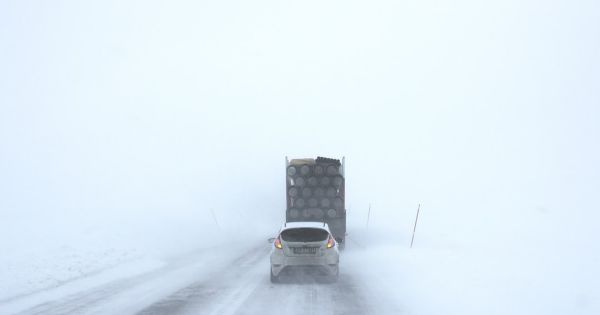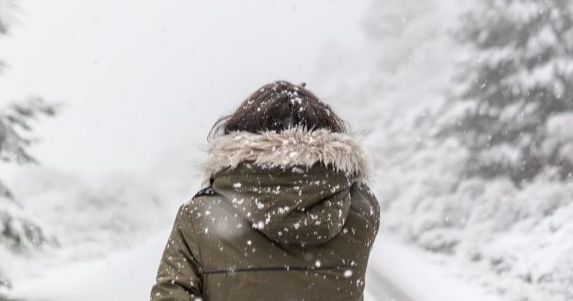In the winter, there are more ways to get hurt than there are during any other season. Between increased travel, snow, ice, and freezing temperatures, there are more than enough different ways to hurt yourself. Below are three of the most common ways to injure yourself in the winter, how to avoid them, and what to do if they happen despite your best efforts.
1. Slip and Fall Injuries
Slip and fall injuries are easy to come by in the winter due to unshoveled sidewalks and unnoticeable black ice. In order to avoid slip and fall injuries, try to take the following precautions:
- Take small steps. Penguins have got it right in this regard -- they know that smaller steps are going to help keep balanced on possibly treacherous ground. Taking large steps can throw off your balance, which makes it harder to catch yourself if you start slipping on ice.
- Keep your hands out of your pockets. If you start to fall, you will need your hands to either help you regain your balance or to soften and direct your fall. In addition, if you have your hands free you can use any available handrails.
- Wear the right shoes. Wearing shoes that have good traction can really help on the ice. Wearing boots with worn-out soles or shoes that never had any traction on the bottom can make walking on ice much harder.
- Take the longer path if it is safer. Sometimes the salted and cleared path is not the shortest path, but remember that you will be much later to wherever you're going if you fall and hurt yourself.
If you do fall, make sure that you take proper care of yourself afterward. If you sustain a serious injury, make sure that you go to the hospital or urgent care to get the proper care and treatment plan. In addition, going to the doctor will help you figure out the severity of your injury. For example, if you sprain your ankle a doctor can tell you if it is mild and will only take a week to ten days to heal or if you're looking at weeks or months of healing.
2. Car Accidents
When a winter storm rolls in, roads can become more treacherous in a matter of minutes. Although there may be unavoidable issues caused by other drivers not taking proper precautions, you should do everything you can to avoid causing any accidents. Every year approximately $60 billion in vehicle maintenance doesn't get done, which means that many cars on the road are not as prepared for winter weather as they should be. Here are some common issues to fix before winter starts impacting the roads:
- Make sure your car's heating system is working. When it comes to making sure that you can see the road during winter storms, you need to ensure that your heating is working so you can use your defrosters when needed.
- Check your tires. Getting winter or all-season tires and ensuring that they don't get bald will help your car get a better grip on the road and can help you avoid spinning out.
- Have an emergency kit. Just in case you go off the road and end up stranded for a few hours, having an emergency kit stocked with the essentials can really help you. Keep blankets, extra hats and gloves, and flashlights in an easily accessible area of your car. For example, if you can't reach your trunk without getting out of the car, don't keep your emergency kit there.
Make sure that you drive carefully and slow down if you're unsure about the road conditions.

3. Snow Shoveling Injuries
If you spend a majority of the year doing little to no physical exercise and then shovel the snow off their driveways, leading to heart attacks and muscle strain. In order to avoid heart issues while shoveling snow, consider these tips:
- Properly prepare to shovel. Start doing some exercise in the fall before the snow starts by going for walks or doing some dynamic stretching.
- Don't do it if you have heart issues. This is not so much a tip as some possible life-saving advice. If you already have heart issues and do not regularly exercise, ask someone else to do your shoveling or hire a service to shovel for you. Although hiring someone else to do the work may be more expensive, it is better to spend money than to seriously injure yourself.
If you experience any shortness of breath, chest pain, or any other common heart attack symptoms, seek medical treatment immediately. No matter where you live there are options for you to get treatment. Even if you live in the U.S., for example, you may be part of the 17.2% of Americans covered by Medicare, in which case your treatment will likely be covered.
Muscle strain is not as serious as a heart attack, but it is still an issue that can come up when you start shoveling your driveway. Here are some tips on how to avoid hurting your muscles while shoveling:
- Pay attention to your form. Make sure that you are not putting all of the work that you're doing directly into your back. If you feel any back pain, stop immediately to readjust your form. Remember to bend your knees and lift that way to avoid straining your back.
- Stretch before you start. Dynamic stretching can help your muscles warm up and function the way they're supposed to. Try doing some arm swings, lunges, and trunk twists. There are lots of great YouTube videos with short dynamic stretching routines, so try out a few to find one that works for you.
- Use a smaller shovel. Especially if you're not used to lifting heavy things, using a bigger shovel can lead to muscle strain. Although a smaller shovel may make you take a little bit longer to clear your driveway or sidewalk, it will make it easier to avoid hurting yourself by trying to pick up a large shovelful of snow.
Be smart about how you are shoveling this year to stay safe. Remember if you feel any symptoms of a heart attack to immediately seek medical treatment. If you strain a muscle, make sure to rest and see a doctor if the pain persists or feel more intense than a normal injury. You know your own body better than anyone else, so use your judgment to determine if you are seriously injured or not.
Winter can be a dangerous time, but by using these tips you can avoid getting injured. If you do end up injured, make sure to seek medical treatment and trust your own judgment if you think something is wrong.
How do you avoid winter injuries? Did you try out any of these tips? Let us know in the comments below!

